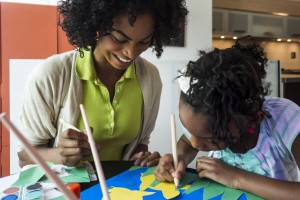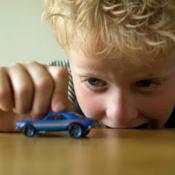 Children with attention-deficit hyperactivity (ADHD) often experience intense emotions, behavioral challenges, and low self-esteem. As a result of these experiences, children with this diagnosis may find it difficult to express their emotions and to develop the capabilities needed to control their behavior. In the short term, these issues can make it difficult for the child to have positive experiences that reinforce a sense of self-esteem and self-efficacy. Over the long term, this can have significant implications for their well-being, success, and motivation.
Children with attention-deficit hyperactivity (ADHD) often experience intense emotions, behavioral challenges, and low self-esteem. As a result of these experiences, children with this diagnosis may find it difficult to express their emotions and to develop the capabilities needed to control their behavior. In the short term, these issues can make it difficult for the child to have positive experiences that reinforce a sense of self-esteem and self-efficacy. Over the long term, this can have significant implications for their well-being, success, and motivation.
While standard approaches to therapy including medication and behavioral supports are integral to improving outcomes, alternative interventions such as art therapy have proven to be highly effective for addressing some of the innate challenges encountered by children with ADHD. Alternative therapies for ADHD are often overlooked by parents and educators, but there is a wealth of emerging research suggesting that these tools can be instrumental in helping children address some of the core challenges they face every day. For this reason, parents, educators, and counselors should be open to the possibility of using alternative therapies to support the needs of children with this diagnosis.
One of the most notable alternative therapies available for the treatment of ADHD is art therapy. Art therapy works in a number of different ways to lessen the impact of many of the negative consequences of ADHD. For instance, art therapy, which utilizes a number of different approaches for nonverbal creative expression, can help children with ADHD channel their intense emotions without engaging in verbal outbursts. This nonverbal form of expression provides an outlet for the child, which can quell behavioral difficulties. As the behavior of the child improves, the child may experience more positive feedback from educators, counselors, and parents. Over time, this may have a significant effect on the child’s self-esteem. As the child gains confidence, his or her behavior will improve dramatically, further reinforcing positive outcomes in all areas of development.
Art therapy has also been shown to increase attention span for children with ADHD by providing a source of focus. Art is a natural part of play in children’s development, and often children with ADHD are able to select art projects that interest them. With an art project of their choice, children with ADHD are given an outlet upon which to focus. Although the duration of attention to the project may increase over several sessions, the process is one that builds the capability of the child with ADHD to channel energy in a positive way that results in accomplishment. This also has an impact on the child’s self-esteem. Often children with ADHD are punished for their inability to pay attention or focus. By teaching this basic skill to children, art therapy can provide an important bridge for utilizing focus and attention skills in the classroom and at home.
Art therapy can also provide a foundation for the child to explore his or her identity. This can be a powerful process, as children with ADHD are often defined by labels and behaviors. For children with ADHD, labeling and attention to negative behaviors can make it difficult for the child to define himself or herself in a positive context. Art can connect the child to an inner identity that is positive and therapeutic. By providing this connection, the child can overcome much of the negativity that encompasses much of the child’s daily experience. In short, art can make a child feel good about himself or herself. Although it may take several sessions for children to experience this outcome, providing the foundation for this type of growth will be imperative for helping the child to achieve a better sense of self.
Even though art therapy is a helpful support for many children with ADHD, it is often not offered by schools or therapists. If you believe that your child may benefit from art therapy, you should ask about this intervention and see if educators or therapists working with your child can help. While art therapy will not replace more traditional forms of therapy provided to your child, it may be an important supplemental resource to help build vital social and behavioral skills that are difficult to teach in therapy. Having this additional support can help your child overcome some of the most common deficits associated with ADHD.

The preceding article was solely written by the author named above. Any views and opinions expressed are not necessarily shared by GoodTherapy.org. Questions or concerns about the preceding article can be directed to the author or posted as a comment below.

 Pay Attention, Parents! ADHD Answers You've Waited For
Pay Attention, Parents! ADHD Answers You've Waited For How to Build Social Skills in Children and Teens with ADHD
How to Build Social Skills in Children and Teens with ADHD 5 Tips to Help You Thrive in Young Adulthood with ADHD
5 Tips to Help You Thrive in Young Adulthood with ADHD

Please fill out all required fields to submit your message.
Invalid Email Address.
Please confirm that you are human.
Leave a Comment
By commenting you acknowledge acceptance of GoodTherapy.org's Terms and Conditions of Use.